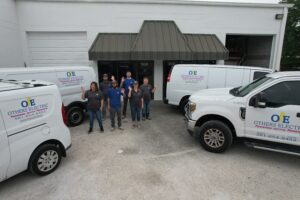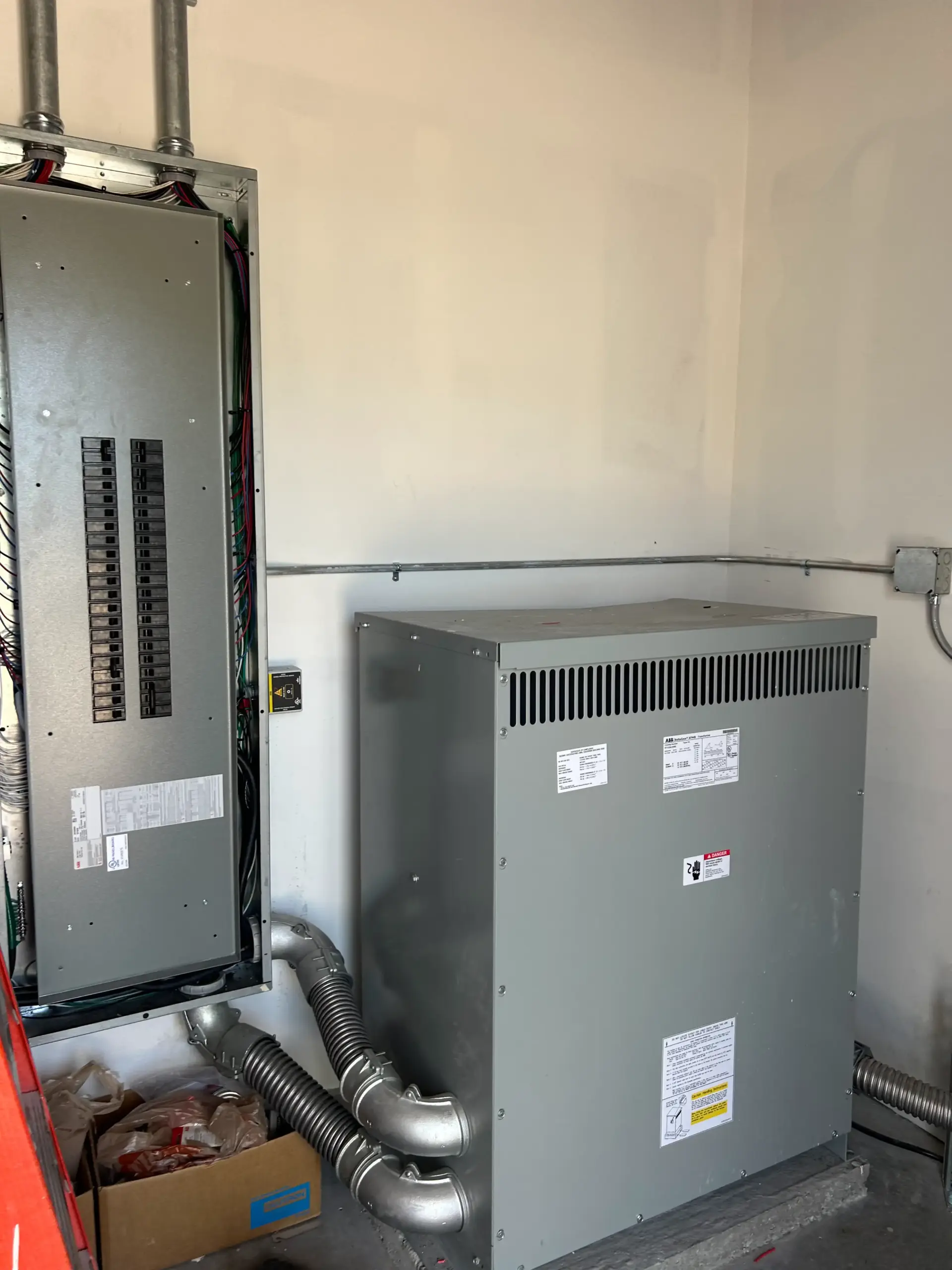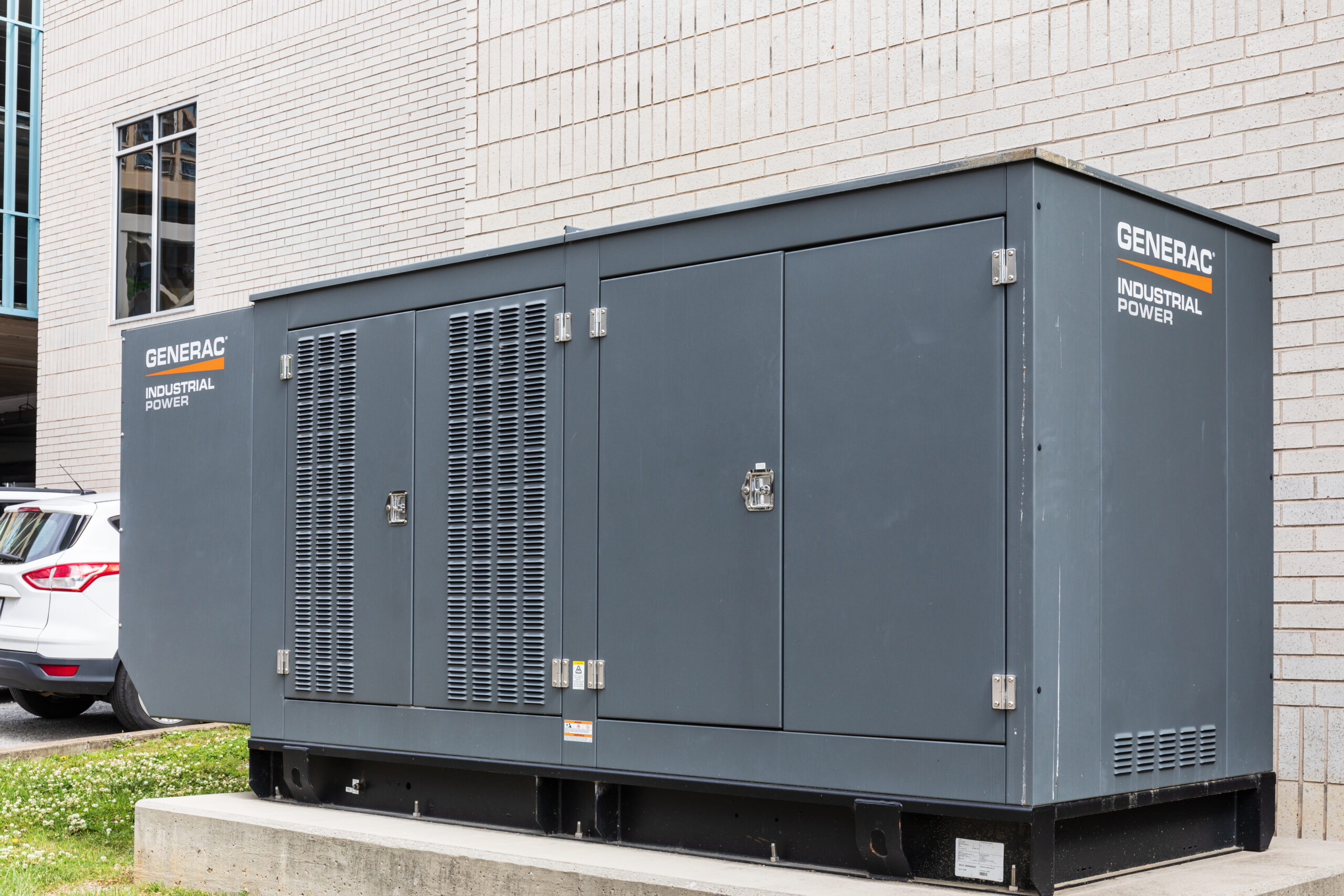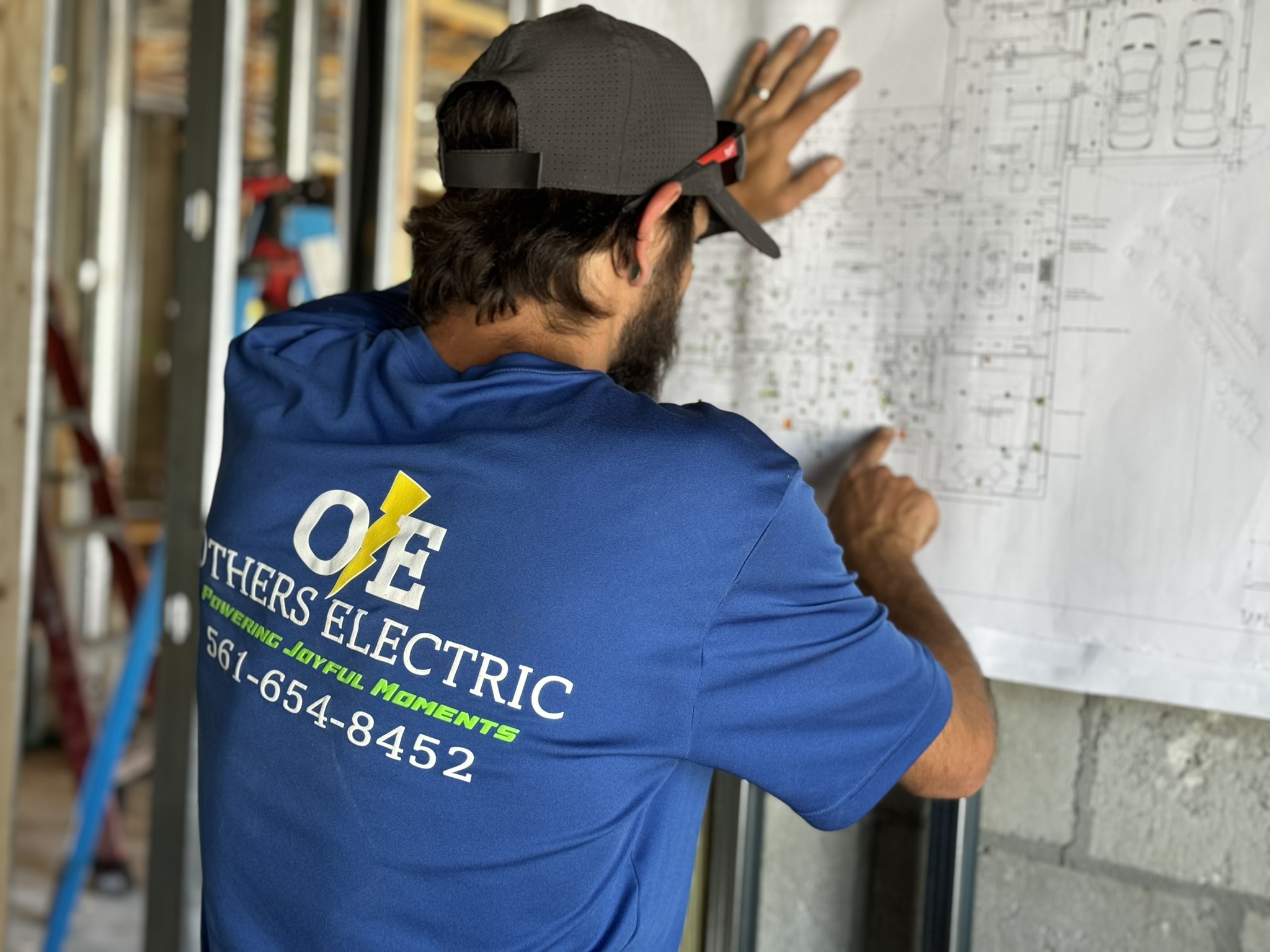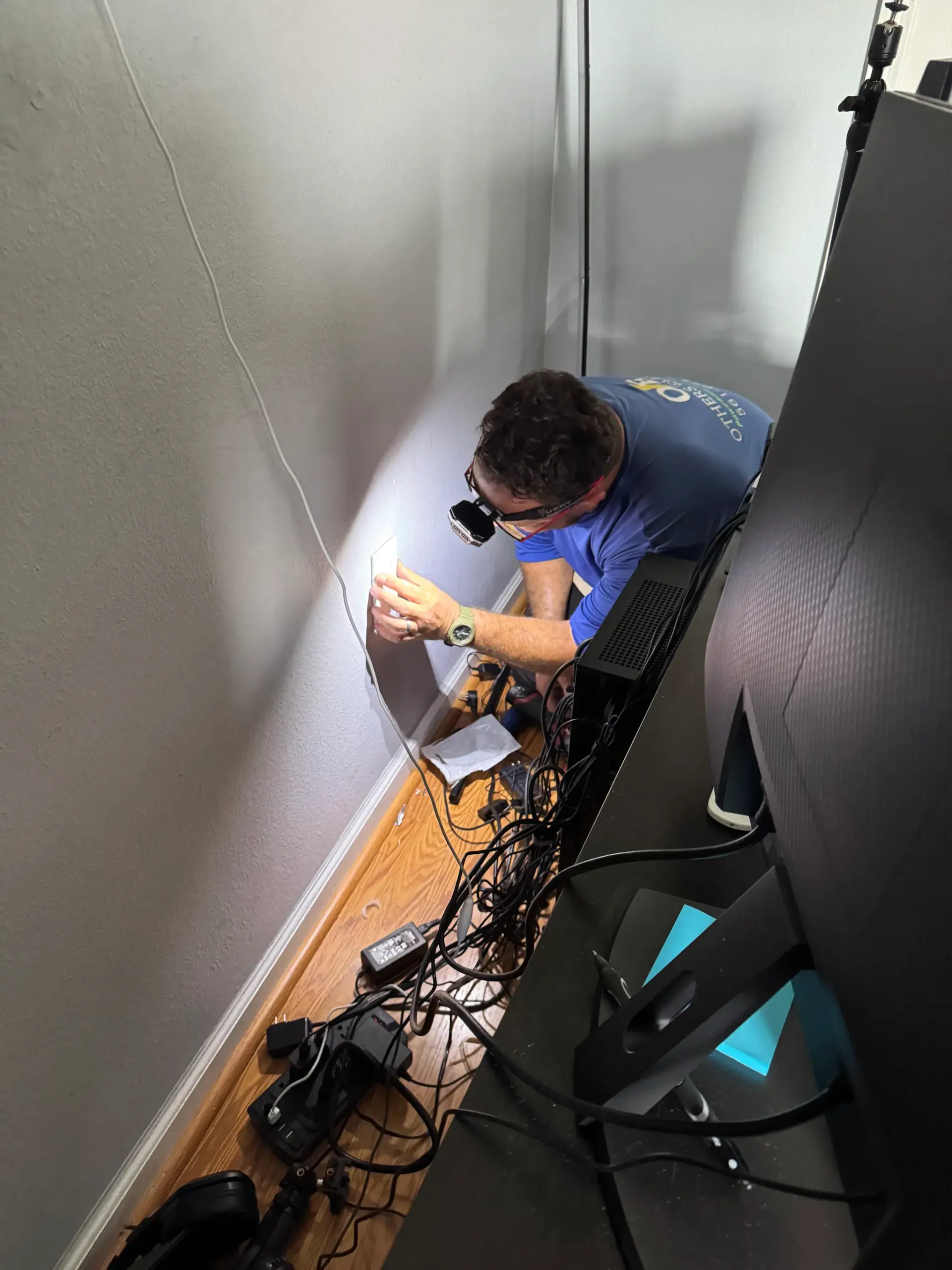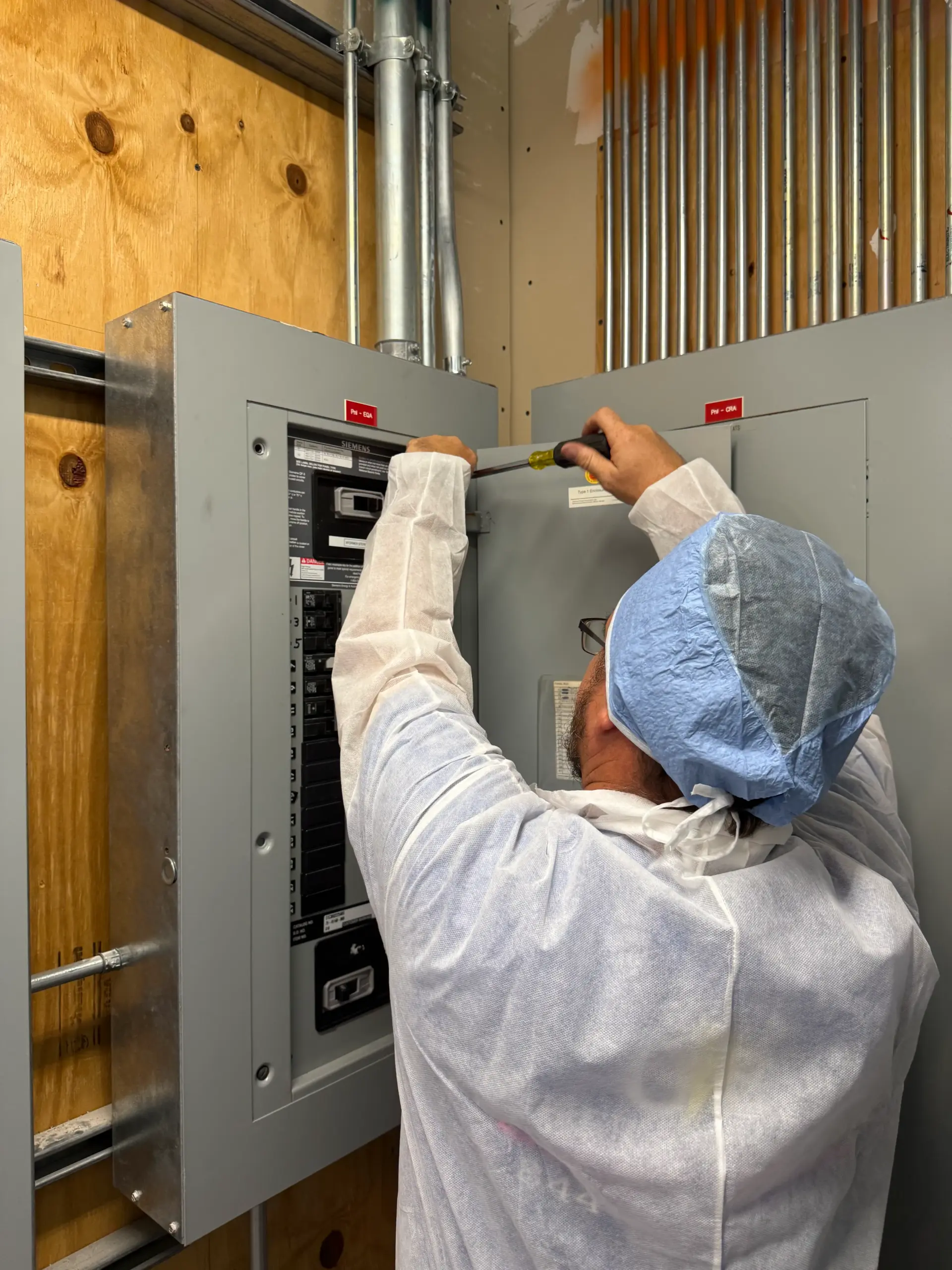When the winds begin to howl and the sky darkens over Florida, having a generator can offer peace of mind. But an important and often misunderstood question surfaces: can you run a generator during a hurricane? The short answer is—not always safely. While it’s tempting to fire up your generator as the first raindrops fall, certain conditions during a hurricane can make that decision dangerous or even deadly.
In this article, we’ll explore whether it’s safe, legal, and advisable to operate a generator during a hurricane. We’ll break down the environmental risks, safety protocols, professional recommendations, and long-term implications for homeowners and businesses.
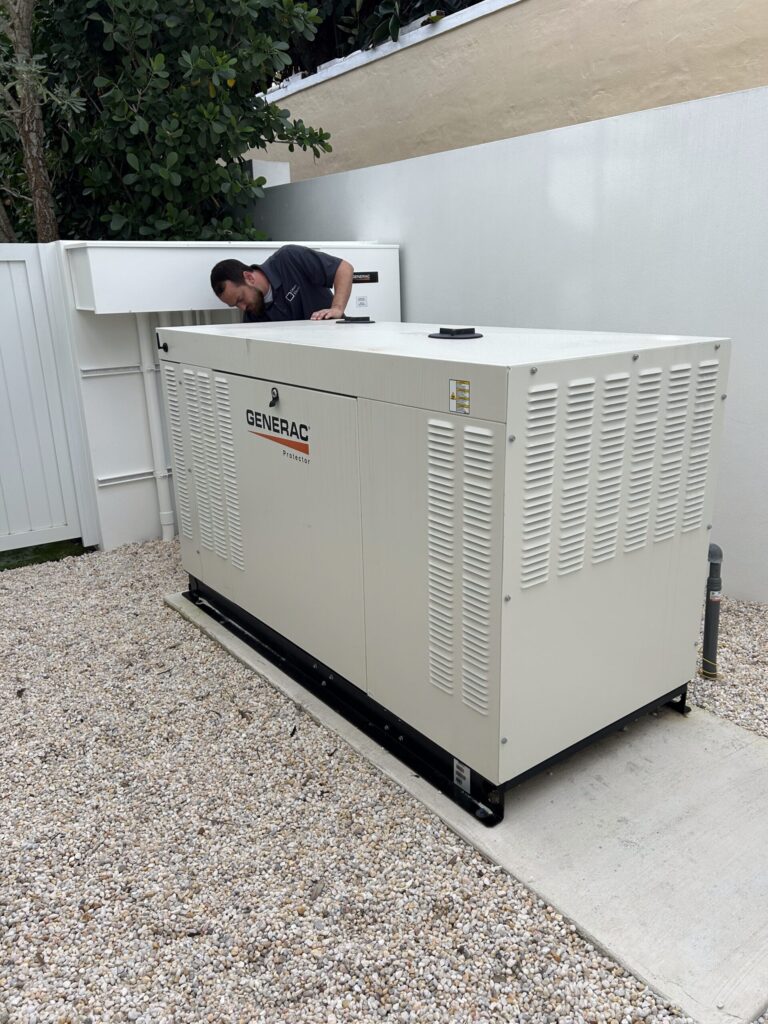
Understanding the Risks of Operating Generators in Hurricanes
Running a generator during a hurricane seems logical. After all, hurricanes often lead to widespread blackouts. But environmental factors—wind speed, water intrusion, and flying debris—pose serious threats to both the generator and the operator. High winds can knock over or damage improperly secured generators. Heavy rainfall can flood engines or cause electrical shorts.
Furthermore, generators emit carbon monoxide (CO), a silent killer that can seep into homes if the equipment is operated too close to doors, windows, or vents. The Centers for Disease Control and Prevention (CDC) reports that CO poisoning from generators is one of the leading causes of death after major storms. In 2005 after Hurricane Katrina, many deaths occurred due to improper generator use indoors.
The question isn’t simply can you run a generator during a hurricane, but whether you can do so safely and effectively given the dangers at play.
Location and Ventilation: The Most Critical Safety Factor
If you’re asking whether you can run a generator during a hurricane, the answer depends largely on where and how you place it. Generators should never be run indoors, including inside garages or partially enclosed spaces. Instead, place them at least 20 feet away from any occupied structure, preferably under a canopy to protect against rain but open enough for ventilation.
During a hurricane, winds may make it unsafe to keep a generator outdoors. Even if placed correctly, flying debris or water intrusion may compromise the equipment. This is why many experts recommend waiting until the worst of the storm passes before starting the generator.
To stay protected, consult professionals like Others Electric to properly install a generator pad or enclosure. These protective measures anchor your system against environmental threats while allowing for safe operation. Ventilation is a matter of life and death; carbon monoxide can build up in seconds, and without outdoor placement and constant airflow, fatalities may result.
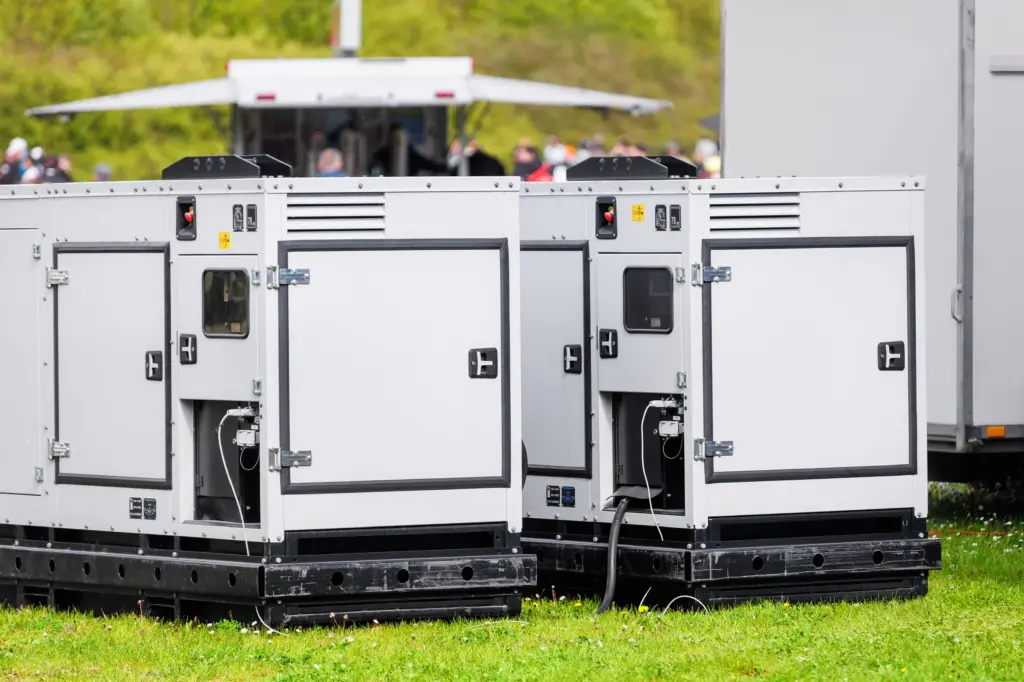
Use a Transfer Switch—Don’t Backfeed Power
Another major risk is backfeeding—when a generator sends electricity back into the grid. This can endanger utility workers and even damage your own electrical system. To prevent this, generators should be connected to a manual or automatic transfer switch, which isolates your home from the main grid while powering select circuits.
Installing a transfer switch is not a DIY task. It should always be done by a licensed electrician familiar with Florida’s electrical codes. Others Electric specializes in such installations, ensuring your home or business is safe and legally compliant.
Backfeeding can lead to electrical fires, electrocution, or severe appliance damage. Never attempt to wire a generator directly to your home’s breaker panel without a proper transfer mechanism. This is especially critical in commercial or multi-family dwellings where multiple systems and people may be affected.
Timing Matters: Wait for the Right Moment
So, can you run a generator during a hurricane? Timing is everything. It’s safest to operate your generator after the eye has passed and wind speeds have decreased. While the temptation to power devices immediately is strong, safety should be the priority. Downed power lines, flooded areas, and unstable structures can all become more hazardous when electricity is reintroduced.
In fact, many municipalities in Florida strongly advise against using portable generators while hurricane conditions persist. Wait until the National Hurricane Center (NHC) or Florida Division of Emergency Management issues an all-clear. Even then, proceed cautiously, inspecting your generator for storm-related damage before use.
It’s also essential to monitor weather updates from the National Hurricane Center or local emergency management services to determine when conditions are safe for operation.
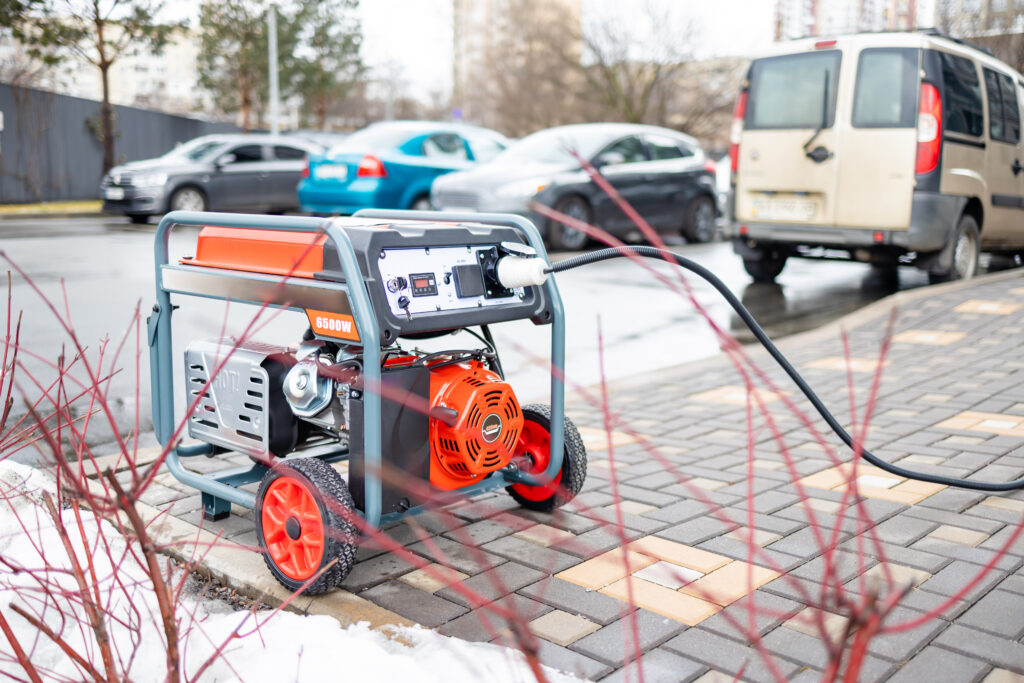
Fuel Storage and Fire Risk
Another factor to consider is fuel storage. Gasoline, diesel, and propane are all flammable and require careful handling. Never store fuel indoors or near ignition sources. If the hurricane has already knocked out power, fuel stations may be closed, so it’s essential to stock up in advance. However, make sure to store it in approved safety containers and out of direct sunlight or excessive heat.
Improper fuel storage has been the cause of many post-storm fires. Some homeowners have even resorted to bringing generators indoors to avoid theft—an incredibly dangerous decision that can lead to fatal CO poisoning. The ESFI (Electrical Safety Foundation International) strongly advises keeping generators locked in well-ventilated, outdoor areas.
Fires caused by spilled fuel or short-circuited generators can do more damage than the storm itself. Make sure to also have a Class B fire extinguisher nearby and know how to use it. Review guidelines published by the National Fire Protection Association (NFPA) for safe generator fuel handling practices.
Maintenance Before and After the Storm
Regular maintenance is key if you plan to rely on your generator during a storm. Inspect it before hurricane season starts, checking for:
- Oil and fuel levels
- Filter conditions
- Battery health
- Spark plug integrity
After a storm, generators should be reinspected before being restarted. Water intrusion can cause rust, corrosion, or electrical shorts that may not be immediately visible. Hiring a professional to inspect the unit ensures you don’t unknowingly create a fire or safety hazard.
It’s also good practice to run your generator monthly for at least 20–30 minutes. This keeps internal components lubricated and batteries charged. A dormant generator for months may fail you when you need it most. Others Electric provides routine maintenance contracts for homeowners and businesses to ensure systems are always ready.
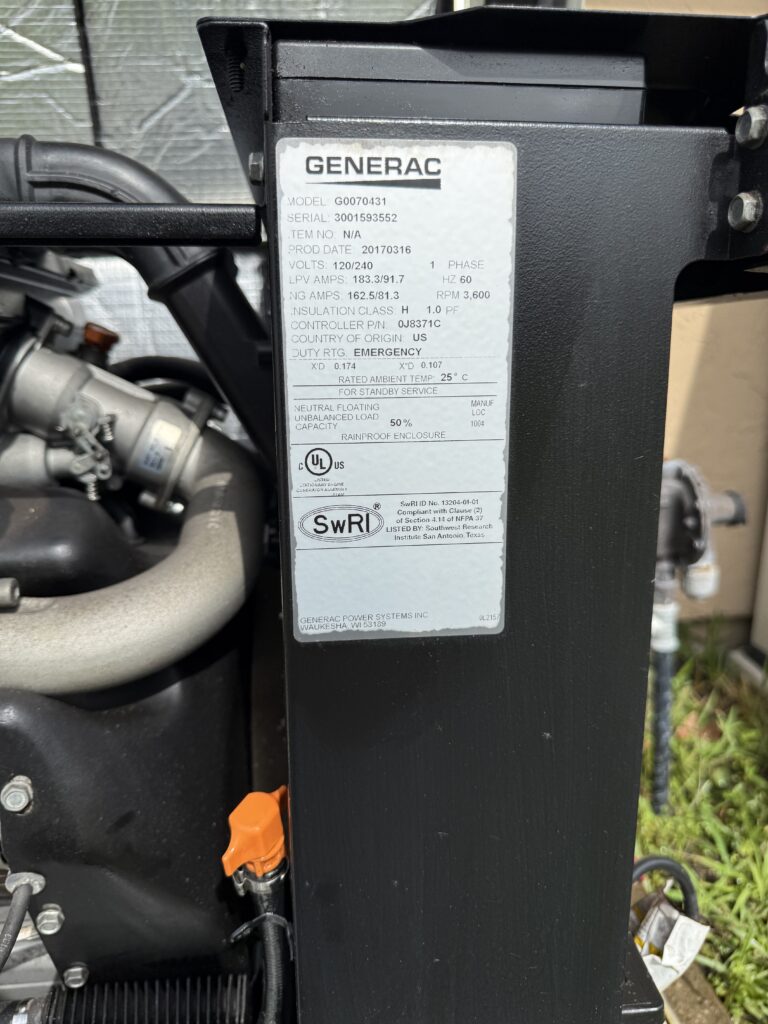
Permanent Standby Generators Are the Gold Standard
While portable generators offer flexibility, permanent standby generators are built specifically for storms. Installed directly into your home’s power system with automatic transfer switches and weatherproof housing, they can detect power loss and activate safely even during stormy conditions.
They are also connected to natural gas or propane lines, eliminating the need for manual refueling. Although more expensive upfront, these systems offer unparalleled reliability during hurricane events. Others Electric installs and services these advanced systems across Florida’s East Coast.
Standby generators can power entire homes, including air conditioning, refrigerators, medical equipment, sump pumps, and communications systems. That’s why hospitals, emergency shelters, and government buildings all rely on such systems.
These systems also offer smart monitoring capabilities. You can control and monitor performance remotely from a smartphone or tablet. Alerts for low fuel, maintenance needs, or system faults allow quick intervention—crucial in extended outages.
Insurance and Legal Considerations
Another element to weigh is insurance. If you’re using a generator during a hurricane and a fire or accident occurs due to improper installation or usage, your homeowner’s insurance may deny the claim. It’s important to confirm that your generator is installed by a licensed professional and meets all manufacturer and code requirements.
Some insurance providers even offer premium discounts for homes equipped with standby generators. Documentation of professional installation and regular maintenance may be required.
Additionally, local regulations might restrict fuel storage quantities or dictate generator placement for safety. Always check your city ordinances or HOA guidelines before installing a generator system.

Conclusion
So, can you run a generator during a hurricane? The safest answer is: only under the right conditions. Avoid running your generator during peak storm hours when winds, rain, and debris are at their worst. Ensure proper placement, secure ventilation, and use of a professionally installed transfer switch.
For Florida homeowners and business operators, preparation is everything. Having your generator properly installed and maintained by certified electricians like the team at Others Electric ensures peace of mind when the lights go out.
For further guidance, consult trusted resources like the CDC, National Hurricane Center, ESFI, and NFPA to better prepare for generator use during severe weather.

